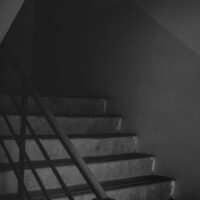Examples Of Inadequate Lighting In FL Premises Liability Cases

In premises liability law, property owners have a legal obligation to keep their spaces reasonably safe for visitors. One commonly overlooked hazard that can lead to serious injuries is inadequate lighting. Poor or missing lighting can result in slip and fall accidents, especially in commercial spaces such as restaurants, parking lots, shopping centers, and apartment complexes.
Ensuring proper lighting is crucial, particularly where foot traffic is high and properties are open late into the evening. If you were hurt on a poorly illuminated property, connect with a Miami personal injury lawyer to discuss your damage recovery options.
What Does Inadequate Lighting Mean?
Inadequate lighting refers to any situation where the amount, placement, or maintenance of lighting is not enough to allow visitors to safely see where they are walking or recognize potential hazards. Poor lighting can obscure steps, spills, uneven flooring, or changes in elevation, all of which can cause a person to trip or fall.
In a premises liability case, a person injured may allege that the property owner failed to provide sufficient lighting, contributing directly to the accident. If proven, the owner or manager could be held liable for damages, including medical expenses, lost income, and pain and suffering.
Some examples of inadequate lighting include the following:
- Poorly lit stairwells. Staircases are among the most dangerous areas in any building. When stairwells lack overhead lighting or have burned-out bulbs, visitors may not see where they’re stepping, increasing the risk of a fall.
- Dim or flickering lights in parking lots. Parking areas must be well-lit to prevent not only falls but also to enhance personal safety. When lighting is too dim or entirely missing, drivers and pedestrians may not see curbs, potholes, or other obstructions.
- Dark hallways in apartment buildings. Tenants and guests should be able to walk safely to and from their units. Long corridors with no or inadequate lighting present a significant risk, especially for the elderly or visually impaired.
- Shadows cast by decorative features. Overhead signage, awnings, or poorly placed landscaping can block light and create shadows where hazards hide. For instance, a step down from a patio area might not be visible if the lighting is obstructed.
- Emergency exits not adequately illuminated. In the event of an emergency, proper lighting is essential for guiding people to safety. Non-functioning exit lights or dark passageways can lead to injury during evacuations.
Business and property owners in Miami should regularly inspect their premises to identify lighting deficiencies. This includes replacing burnt-out bulbs promptly, installing motion-activated or timed lights in rarely used areas, and ensuring backup lighting is in place for emergencies.
When Should I Seek Legal Support?
If you’ve been injured in a poorly lit area, you may have a valid premises liability claim. An experienced Miami personal injury lawyer can investigate the conditions, gather evidence such as surveillance footage or witness statements, and pursue compensation on your behalf.
Is it time for you to shed light on an irresponsible property owner? It’s important to know your rights, speak with the legal team at Spencer Morgan Law today. Call 305-423-3800.
